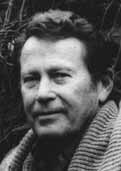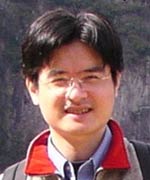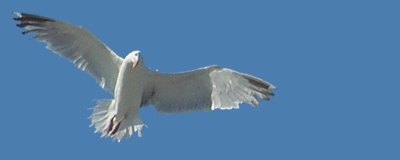
Richard Wilbur
理查德-威尔伯
  Richard Purdy Wilbur (born 1 March 1921) is an American poet. He was appointed the sixth Poet Laureate Consultant in Poetry to the Library of Congress in 1946, and twice received the Pulitzer Prize for Poetry in 1957 and in 1989. In 1987 Wilbur became the second poet, after Robert Warren, to be named U.S. Poet Laureate. In 2006, Wilbur won the Ruth Lilly Poetry Prize. Richard Purdy Wilbur (born 1 March 1921) is an American poet. He was appointed the sixth Poet Laureate Consultant in Poetry to the Library of Congress in 1946, and twice received the Pulitzer Prize for Poetry in 1957 and in 1989. In 1987 Wilbur became the second poet, after Robert Warren, to be named U.S. Poet Laureate. In 2006, Wilbur won the Ruth Lilly Poetry Prize.
理查德-威尔伯(Richard Wilbur)(1921 - ),美国诗人。1946年被任命为第六位国会图书馆桂冠诗人顾问,并于1957年和1989年两次获得普利策诗歌奖。1987年,成为继罗伯特-沃伦之后第二位获美国桂冠诗人称号的诗人。2006年, 威尔伯赢得了卢斯-里利诗歌大奖。
|

|

译者
Translator
戴玨
Edgar Dive
 
戴玨毕业于伦敦经济学院和澳洲国立大学。其诗作曾发表于《乾坤诗刊》《诗选刊》等。现居于香港。
Born in 1972, Edgar Dive has studied at the London School of Economics and the Australian National University. He has published works in literary journals including Chien Kun Poetry Quarterly and Poetry Selected. He now lives in Hong Kong.
|
Of the four louts who threw him off the dock
Three are now dead, and so more faintly mock
The way he choked and splashed and was afraid.
His memory of the fourth begins to fade.
It was himself whom he could not forgive;
Yet it has been a comfort to outlive
That woman, stunned by his appalling gaffe,
Who with a napkin half-suppressed her laugh,
Or that grey colleague, surely gone by now,
Who, turning toward the window, raised his brow,
Embarrassed to have caught him in a lie.
All witness darkens, eye by dimming eye.
Thus he can walk today with heart at ease
Through the old quad, escorted by trustees,
To dedicate the monumental gym
A grateful college means to name for him.
Seated, he feels the warm sun sculpt his cheek
As the young president gets up to speak.
If the dead die, if he can but forget,
If money talks, he may be perfect yet.
|
|
那四个把他抛落船坞的粗俗之辈
三个已经死掉,所以他们对他呛水、
溅水、恐惧模样的嘲弄也更加软弱无力。
他对第四位的记忆则开始消逝。
他无法原谅的是他自己;
而那女人,他骇人的失礼
让她惊愕,用餐巾半掩笑态,
能比她更长命总算有些慰怀,
或者那白头的同事,如今肯定已走了,
曾因发觉他说假话而面有窘色,
耸眉,还转身面向窗户。
所有目击者都变得暗淡,视力渐模糊。
所以今天他可以漫步,心情轻松,
经过旧四方院,由受托人陪同,
去奉献那座雄伟的体育馆
给一所欲以他命名、感激不尽的学院。
当年轻的院长站起来讲话
他坐着,感到温暖的阳光雕刻他的面颊。
如果死者死去,如果他不过是得忘却,
如果金钱会说话,他早晚会完美无缺。
|
The warping night-air having brought the boom
Of an owl's voice into her darkened room,
We tell the wakened child that all she heard
Was an odd question from a forest bird,
Asking of us, if rightly listened to,
"Who cooks for you?" and then "Who cooks for you?"
Words, which can make our terrors bravely clear,
Can also thus domesticate a fear,
And send a small child back to sleep at night
Not listening for the sound of stealthy flight
Or dreaming of some small thing in a claw
Borne up to some dark branch and eaten raw.
|
|
晚间扭曲的微风将一只
鸺鹠低沉的叫声带进了黑暗的寝室,
我们对被吵醒的孩子说她听到的
不过是只林鸟的一个
古怪问题。它在问我们,如果听真点,
“谁给你们做饭?”又问“谁给你们做饭?”
话语,令我们的惊骇变得焕然明晰,
因此也能驯服恐惧,
能在晚上将小孩子送回梦乡
不用再听悄飞的声响
或梦到爪下的某种小东西
给抓上阴暗的枝桠,活生生地被吃。
|







